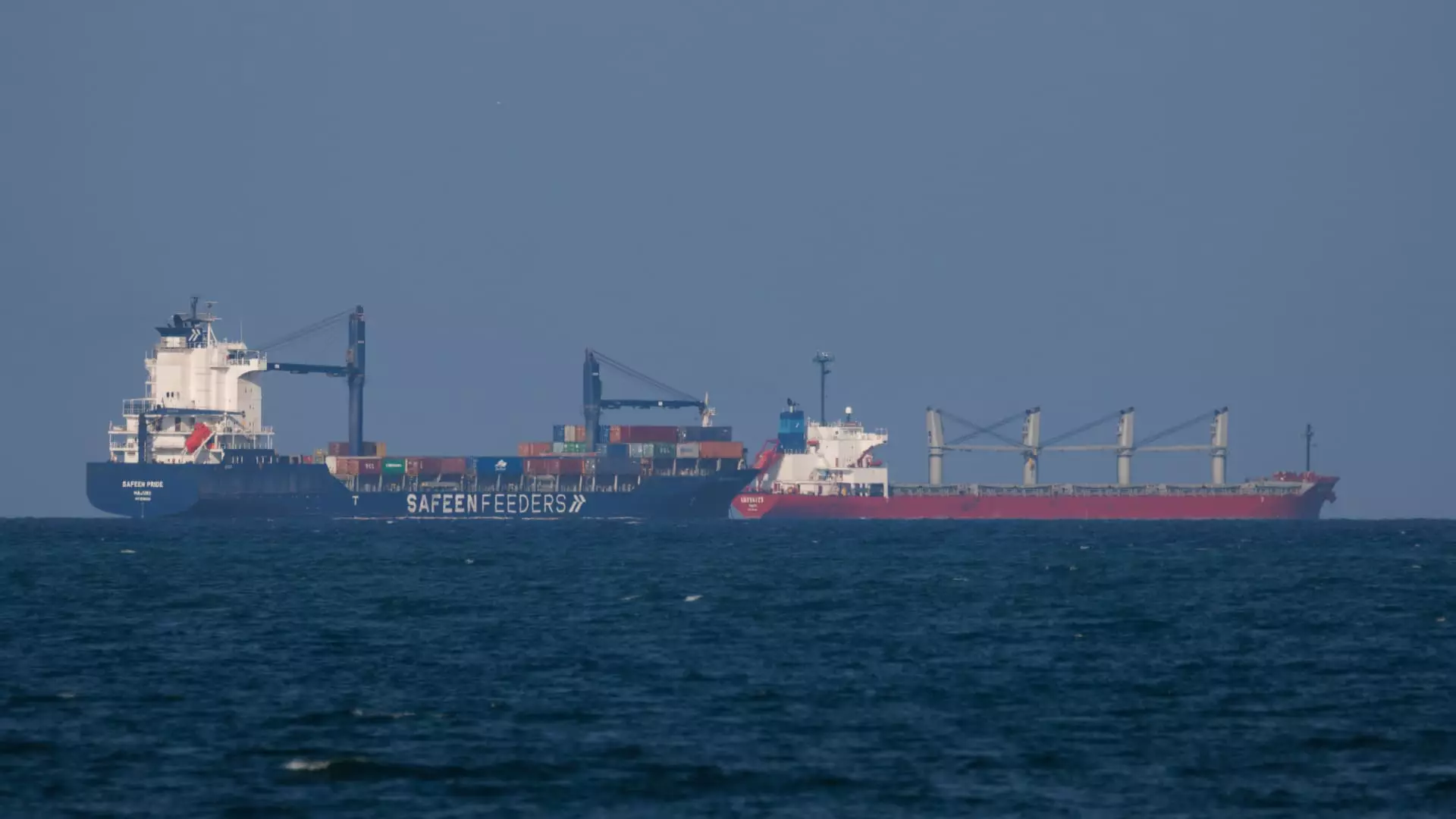Commodities trader Trafigura has recently announced its assessment of the security risks associated with further Red Sea voyages following an attack on one of its tankers by Yemen’s Houthi group. The incident occurred when the Marlin Luanda was hit by a Houthi anti-ship missile. In response, Trafigura stated that no further vessels under its operation are currently transiting the Gulf of Aden, and they continue to carefully evaluate the risks involved in any future voyages, taking into consideration the security and safety of the crew, as well as collaborating with shipowners and customers. This recent incident has led numerous shipping companies to suspend transits through the Red Sea due to the increased risks posed by the Houthi group.
The Houthi group, backed by Iran, has been launching attacks on vessels in the Red Sea since November 19. This wave of attacks was prompted by Israel’s military operations in Gaza. Initially, the Houthi attacks primarily targeted container ships navigating through the Red Sea, leaving fuel tankers relatively unaffected. However, many fuel tankers have now also started to avoid this route due to the heightened security concerns. Notably, QatarEnergy, the world’s second-largest exporter of liquefied natural gas, recently made the decision to halt sending tankers through the Red Sea for this very reason.
The Marlin Luanda, a tanker flying the flag of the Marshall Islands, fell victim to a Houthi attack, resulting in a distress call and reported damage to the vessel. However, the crew successfully extinguished the ensuing blaze in one cargo tank on the starboard side of the tanker. Trafigura reported that all crew members are safe, and the Marlin Luanda is currently en route to a safe harbor. The firefighting efforts were further supported by naval vessels from India, the United States, and France. The incident demonstrated the serious risks that vessels face when navigating through the Red Sea.
Various countries and their military forces have responded to the Houthi attacks on shipping in recent weeks. The United States and Britain, in particular, have deployed warplanes, ships, and submarines to conduct retaliatory strikes against the Houthi forces. These strikes aim to neutralize the threat posed by the Houthi group and ensure the safety of merchant vessels and naval ships in the region. Central Command, the U.S. military’s operational-level command, highlighted the importance of their actions in destroying a Houthi anti-ship missile ready for launch in the Red Sea, as it posed an imminent threat to both merchant vessels and U.S. Navy ships.
In response to the Houthi attacks, the United States and Britain reportedly launched air strikes targeting Yemen’s main oil export terminal, Ras Issa. However, it remains unclear whether these strikes are the same ones referred to by Central Command. Nevertheless, the response from various nations indicates the severity of the situation and the efforts being made to safeguard trade routes and critical infrastructure in the region.
The recent Houthi attacks on vessels navigating through the Red Sea have raised significant concerns about the security risks associated with these voyages. Shipping companies, including Trafigura, have suspended transits through the Red Sea, opting for longer and costlier routes around Africa. The incident involving the Marlin Luanda highlights the dangers faced by crews and the potential for significant damage to vessels. International military forces have been actively involved in responding to the attacks, conducting retaliatory strikes to protect merchant vessels and naval ships. While the situation remains uncertain, it is clear that the risks and challenges associated with Red Sea voyages have escalated, necessitating careful assessment and consideration by all parties involved.


Leave a Reply